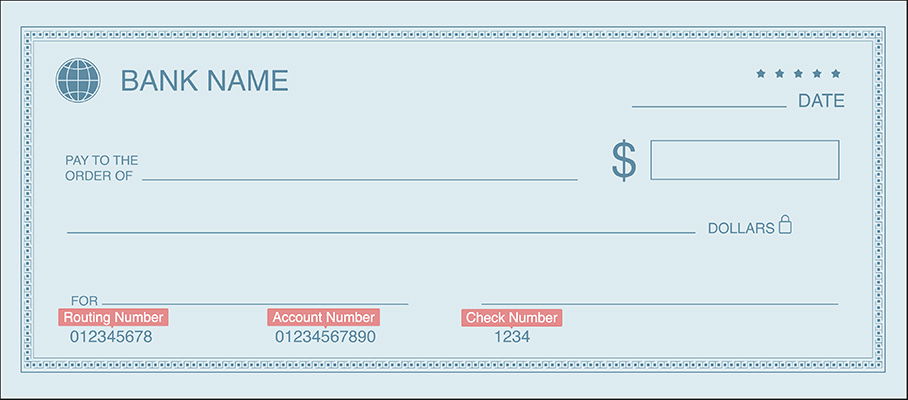Offshore bank accounts have long been shrouded in an aura of mystery, often linked to the wealthy elite, multinational corporations, and even the fictional exploits of international spies. However, the reality of offshore banking is far more accessible and practical for a wide range of individuals.

Offshore accounts can provide significant benefits, such as asset protection, currency diversification, and potential tax advantages. In this article, we’ll explore what offshore banking entails, the steps to open an offshore account legally, and the advantages and disadvantages you should consider.
What is offshore banking?
Offshore banking refers to the process of keeping money in a financial institution located outside the depositor’s home country. This foreign financial institution could be in a country halfway across the world or in a neighboring nation, depending on the account holder’s needs and preferences.
Despite the name, an offshore bank account functions much like your local bank account, providing similar services such as savings accounts, debit cards, credit cards, and online banking.
How to Open an Offshore Bank Account Legally
Opening an offshore bank account legally involves a series of steps designed to ensure compliance with international and domestic laws. Here’s a detailed guide to help you navigate the process:
1. Research and Choose a Suitable Jurisdiction
Different countries offer varying benefits for offshore banking. Some are renowned for their financial privacy laws, while others may offer favorable tax conditions. Research jurisdictions that align with your financial goals and legal requirements.
2. Select a Reputable Offshore Bank
Within your chosen jurisdiction, identify reputable banks that have a good track record. Look for banks that offer the services you need, such as multi-currency accounts, investment options, or high-interest savings accounts.
3. Prepare the Necessary Documentation
Gathering the necessary documentation is a vital step in opening an offshore bank account. Typically, you will need:
- Identification: Valid passport, driver’s license, or another government-issued ID.
- Proof of address: Recent utility bills, lease agreements, or property deeds.
- Proof of income or wealth: Tax returns, pay stubs, or bank statements from your current bank.
- Bank reference: Statements or letters from your current bank to establish your banking history.
4. Submit an Application
Most offshore banks allow you to apply online. Fill out the application form accurately and attach the required documents. Some banks may require notarized copies of your documents or additional paperwork.
5. Initial Deposit
Be prepared to make an initial deposit as part of the account opening process. The required amount can vary significantly between banks and account types.
6. Compliance with Tax Regulations
Ensure you comply with your home country’s tax laws. This typically involves reporting your offshore account to tax authorities. For U.S. citizens, this means filing an FBAR (Report of Foreign Bank and Financial Accounts) and possibly a FATCA (Foreign Account Tax Compliance Act) report if the account balance exceeds certain thresholds.
7. Understand the Bank’s Policies and Fees
Familiarize yourself with the bank’s policies, including minimum balance requirements, maintenance fees, and transaction charges. These can impact the overall benefits of having an offshore account.
Advantages of Offshore Banking
When considering an offshore bank account, it’s essential to weigh the potential advantages it offers. These benefits can be quite compelling, depending on your specific financial situation and needs.
Asset Protection
One significant advantage of offshore banking is asset protection. This benefit is of particular interest to high-net-worth individuals and business owners, but it can be equally beneficial for anyone interested in safeguarding their assets from legal disputes or economic instability.
Offshore bank accounts can serve as a secure and central location for assets. By keeping part of your wealth in a jurisdiction other than your home country, you’re diversifying the risks associated with potential economic downturns or changes in governmental policies. For instance, if your domestic economy takes a downturn, having a portion of your assets abroad could provide a financial buffer.
Moreover, certain offshore accounts offer a level of legal protection, potentially shielding your assets from legal proceedings such as lawsuits or bankruptcy filings.
Currency Diversification
Currency diversification is another advantage of offshore bank accounts. When you hold money in an offshore bank account, you’re not restricted to a single currency. Instead, you can hold deposits in multiple currencies, providing a hedge against currency risk.
For example, if your home country’s currency significantly depreciates, it could lead to a relative decrease in your wealth. However, if you hold funds in other currencies through your offshore account, you might be shielded from this depreciation. This multi-currency feature can also be beneficial for frequent travelers or individuals conducting business across different countries.
Tax Benefits
Lastly, it’s worth noting the potential tax advantages of offshore banking. Certain offshore banks are located in tax havens, or countries known for their low or no taxes on certain types of income. These jurisdictions might offer favorable tax conditions compared to your home country.
While these potential tax benefits should never be used to avoid paying taxes unlawfully, they can be part of an effective wealth management strategy when used correctly. For instance, some offshore jurisdictions don’t tax interest income, which could be beneficial for those with a substantial amount of money in their savings or investment accounts.
It’s important to always disclose these accounts and income to your home country’s tax authority, to stay in compliance with all tax laws.
Disadvantages of Offshore Banking
While offshore bank accounts can offer several benefits, they also come with challenges that potential account holders need to be aware of.
Cost
Some of the best offshore bank accounts are often associated with various costs. To start, there might be a substantial minimum deposit requirement. This can put some of the more premium offshore accounts out of reach for individuals without a high level of wealth.
Furthermore, offshore banking can involve monthly maintenance fees and transaction fees that are often higher than those of a domestic bank. These fees can add up over time, potentially eroding the benefits gained from lower taxes or higher interest rates.
Accessibility
Physical and technological accessibility can be a concern when banking offshore. Depending on the location of the bank, accessing your funds when you need them can be more challenging than with a domestic account. For instance, differences in time zones can make real-time banking difficult, and language barriers could potentially complicate communication with customer service.
Regulation and Stability
Lastly, not all countries that offer offshore banking have the same level of political and economic stability. While places like the Cayman Islands and Switzerland are known for their stability, this is not a universal trait among all jurisdictions offering offshore accounts.
Moreover, the level of consumer protection offered by offshore banks may not be as comprehensive as what you would find in your home country. For instance, some countries might lack deposit insurance schemes, leaving your funds vulnerable if the bank were to fail.
The Legal Landscape of Offshore Accounts
While offshore bank accounts have unfortunately been linked to money laundering and tax evasion, it’s essential to underscore that having an offshore account is completely legal. However, account holders must adhere to tax laws and regulations in their home country, and not use these accounts for illegal purposes.
This includes reporting your offshore accounts to the relevant tax authorities and paying any taxes owed on interest or other income earned from these accounts. Failure to do so could lead to severe penalties, including charges of tax fraud.
The Role of Offshore Banking in Investment and Savings
Offshore banking can also be an effective tool for managing your savings and investments. Many offshore banks offer various financial services, including investment accounts and high-yield savings accounts, allowing individuals to invest money in a range of assets across different markets.
This makes offshore banking particularly appealing to expatriates, international businesspeople, and globe-trotters, as it provides a level of flexibility that is often unmatched by domestic accounts. However, it’s important to note that these potential benefits should always be balanced against any associated costs, such as monthly fees or transaction charges.
Myths and Misconceptions About Offshore Banking
Offshore banking is often misunderstood, thanks to a slew of myths and misconceptions. The truth is, you don’t have to be a billionaire or an international spy to open an offshore bank account. Many people, from expatriates to retirees, can benefit from foreign currency holdings, potential tax benefits, and other financial advantages that come with having an account with a foreign bank.
Bottom Line: Is Offshore Banking Right for You?
Offshore banking can offer a host of benefits, from asset protection to potential tax advantages. However, it’s not a decision to be taken lightly. It’s crucial to understand the legal implications, costs, and potential risks before deciding to bank offshore.
Whether to open an offshore bank account will largely depend on your individual circumstances. If you’re considering banking offshore, it’s always a good idea to consult with a financial advisor or tax professional to understand all the implications.
After all, making sense of offshore accounts can be tricky, but with the right guidance and knowledge, you can make an informed decision that aligns with your financial goals.
Frequently Asked Questions
Can I open an offshore bank account online?
Yes, many offshore banks offer the option to open an account online, but the process can vary depending on the bank. Some banks may require a notarized copy of your passport, proof of address, and a reference from your current bank. Others may need more or less, depending on their internal policies and the regulations of the country where they’re located.
Can U.S. citizens open offshore bank accounts?
Yes, U.S. citizens can legally open an offshore bank account. However, it’s important to note that U.S. citizens must report these accounts to the IRS and the U.S. Treasury Department if the total value of their foreign financial accounts exceeds a certain threshold.
How can I access the money in my offshore account?
There are several ways to access your money in an offshore account. You can use a debit or credit card issued by your offshore bank, make electronic transfers, or write checks. The exact methods will depend on the services your offshore bank provides.
What happens to my offshore account if I die?
In the event of your death, your offshore account would be handled based on the local laws of the country where the bank is located and any instructions you may have left with the bank. Some offshore jurisdictions are notoriously complex when it comes to probate laws, so it’s essential to discuss this aspect with your bank when opening an account.
Can I open an offshore account anonymously?
While some offshore jurisdictions used to allow anonymous accounts, this is no longer the case due to global efforts to increase transparency and fight against illicit activities like money laundering and tax evasion. Today, every bank is required to know its customers (KYC regulations) and will need your personal information when you open an account.
Can offshore banking help with my retirement planning?
Yes, offshore banking can be a part of your retirement planning, especially if you plan to retire abroad or travel frequently during your retirement. Some offshore banks offer specific services for retirees, including access to medical insurance and investment products.



